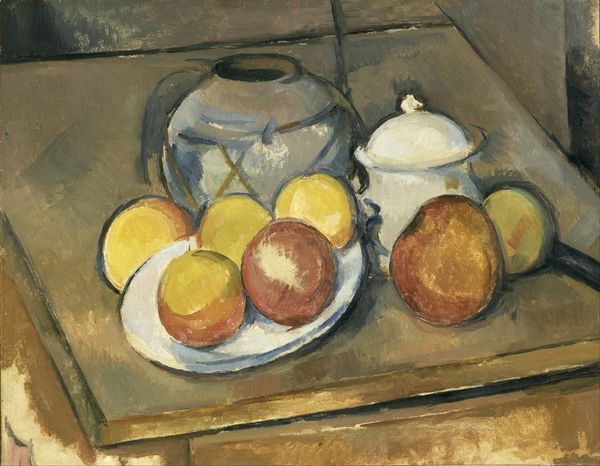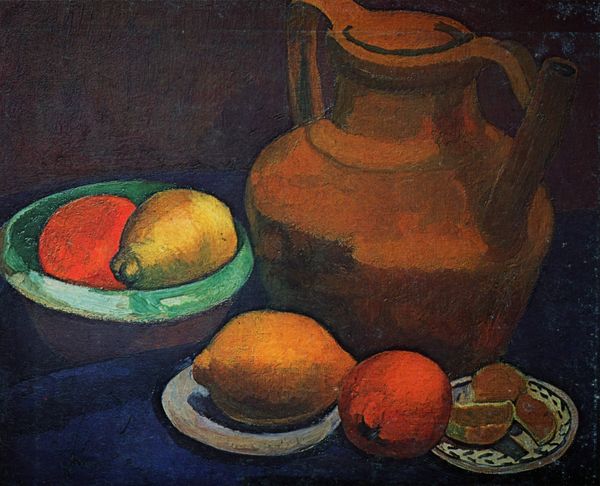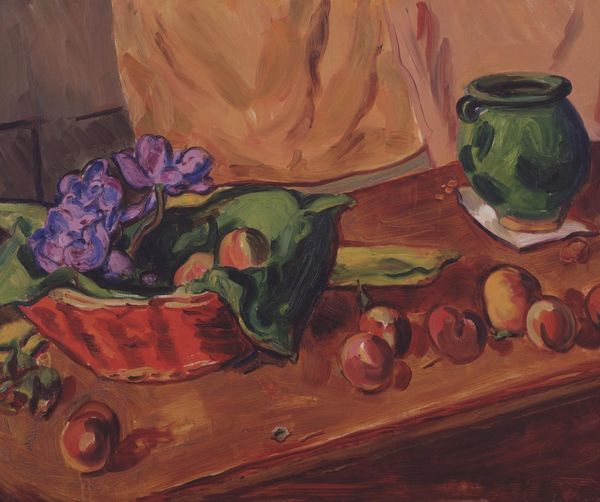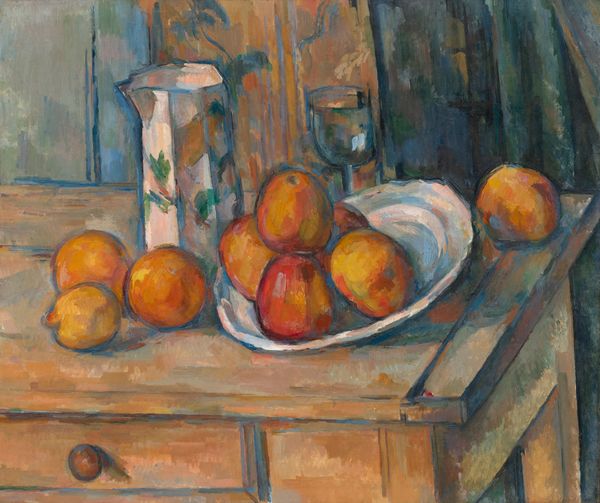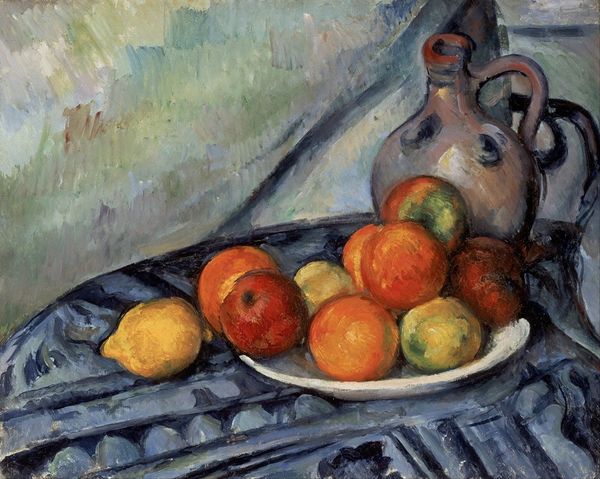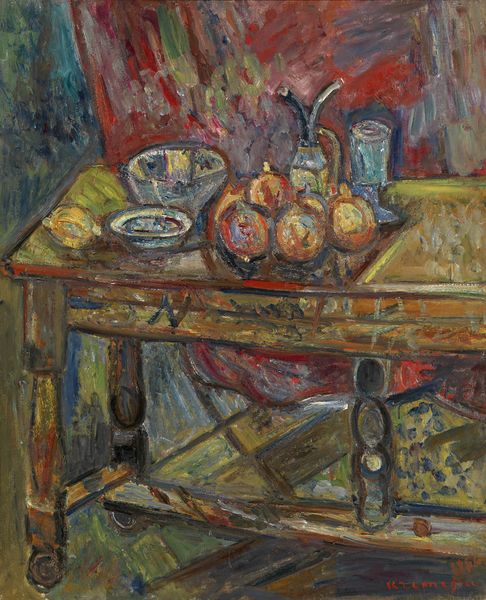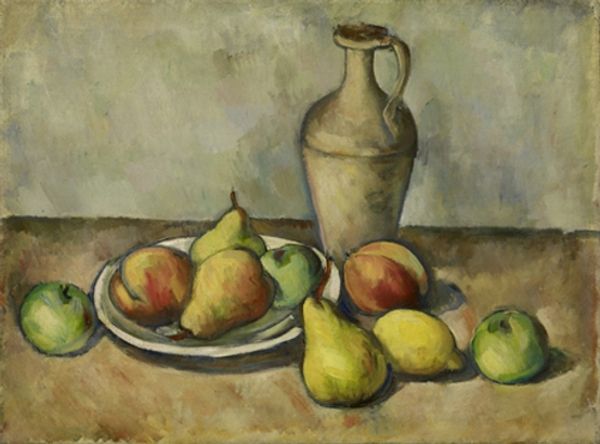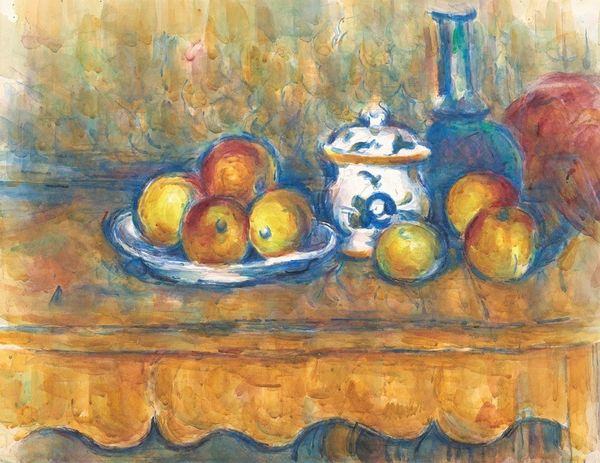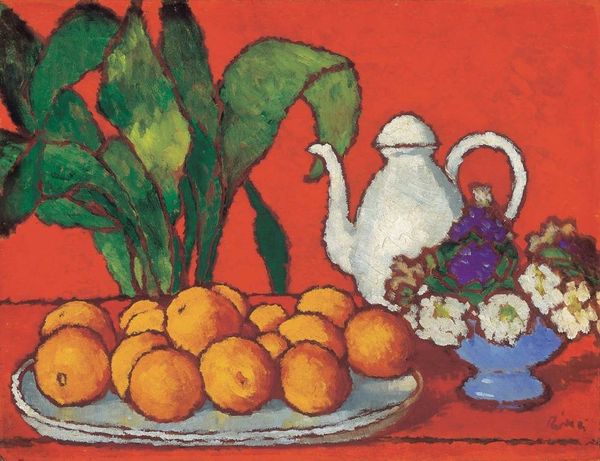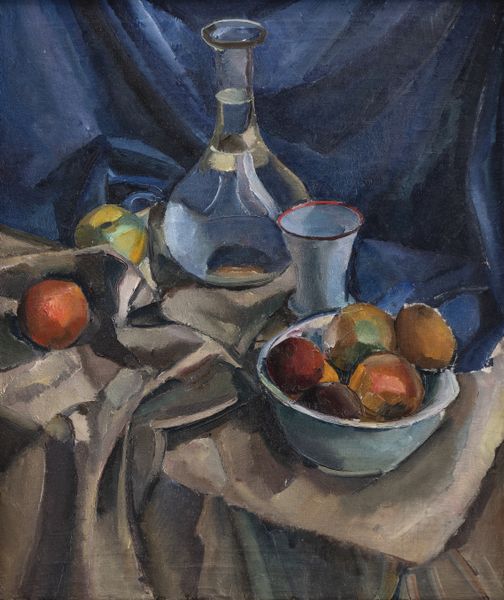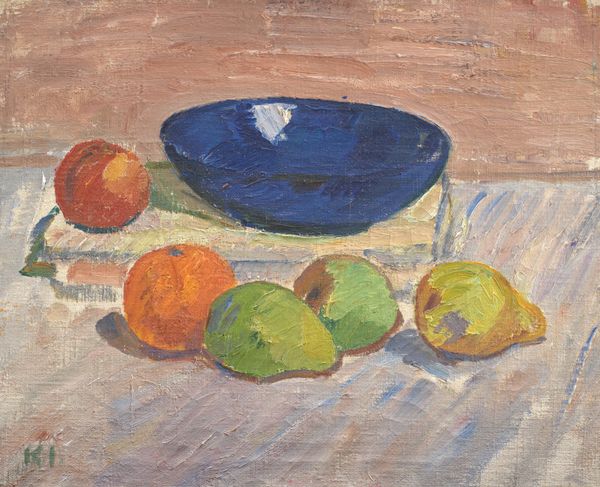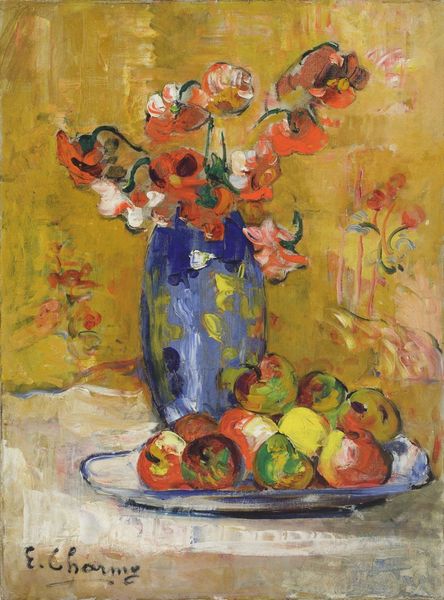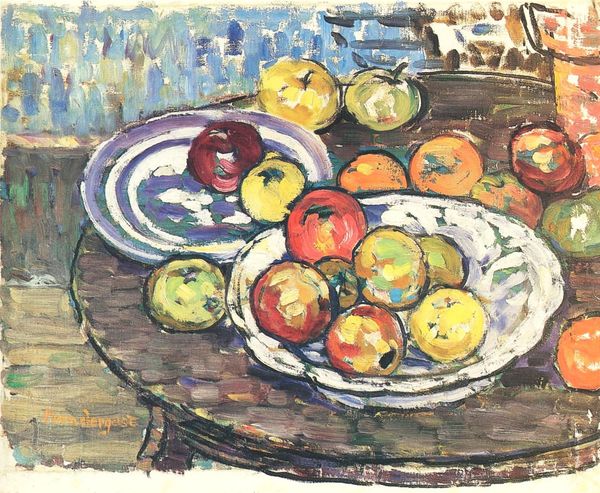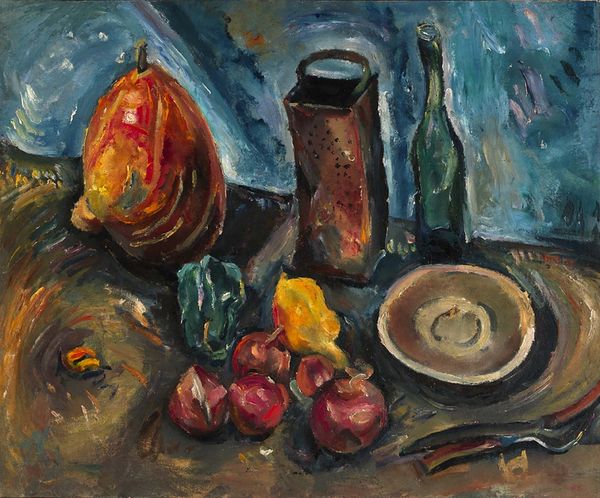
Dimensions: 50.5 x 74 cm
Copyright: Public domain
Editor: Here we have Paula Modersohn-Becker’s "Still life with fish bowl" from 1906, created using oil paint. The textures feel thick, and I find the overall composition quite intriguing because of the rough brushstrokes contrasting the smooth surfaces. How would you interpret this painting from a formalist perspective? Curator: Focusing on the formal elements, observe the composition. The artist establishes a clear juxtaposition between the rounded forms – the fishbowl, the fruit, the jug – and the linear backdrop. Do you notice how she uses color to create emphasis? Editor: Yes, the warm, earthy tones of the jug and fruit contrast with the cooler tones of the fishbowl and background. Curator: Precisely. And consider the brushstrokes. They are visible, almost aggressive, contributing to a sense of vitality and directness. What do you observe about the way Modersohn-Becker renders light? Editor: The light seems diffused, not sharply defined, which flattens the forms somewhat. There aren’t strong shadows. Curator: Good. The flatness you mention draws our attention to the surface of the canvas itself, reminding us of the painting as an object, rather than a window onto reality. The arrangement of these elements creates a deliberate tension, a play between representation and abstraction. Does that resonate with you? Editor: It does. I see how analyzing the formal qualities gives us insights into Modersohn-Becker's artistic intentions. Curator: Indeed. It invites us to consider how the artist manipulated form, color, and texture to create meaning beyond the literal representation of the objects depicted. The real subject is the paint, the composition itself. Editor: That's fascinating. I’ll certainly be looking at still life paintings with fresh eyes now!
Comments
No comments
Be the first to comment and join the conversation on the ultimate creative platform.
